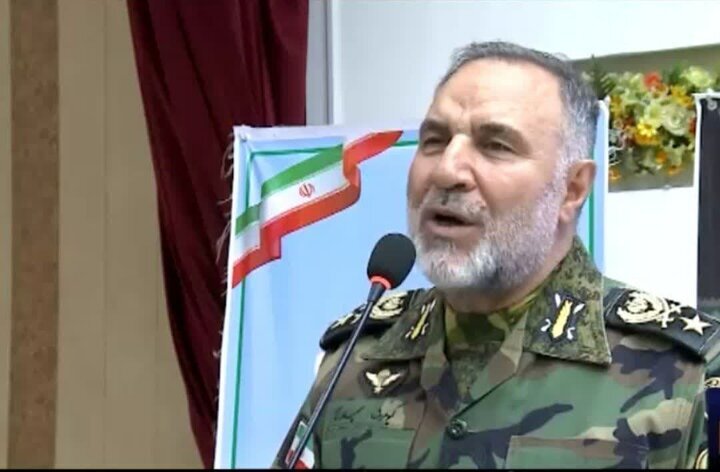Senior commander praises technological advancements in Iran’s Army Aviation

TEHRAN – Brigadier General Kioumars Heidari, Commander of the Iranian Army’s Ground Force, highlighted the advanced capabilities of the Islamic Republic of Iran Army Aviation, declaring it a "strategic unit" at the forefront of technology.
Speaking at a ceremony on Monday honoring the martyrs of Iran’s Army Aviation, General Heidari noted the significant improvements in the unit’s weapons and equipment since the 1980s Iran-Iraq war.
"The Army Aviation now boasts cutting-edge technology, with weapons and specialized equipment far surpassing those of the Iran-Iraq war era," General Heidari stated.
He continued: "Today, Army Aviation is at the forefront of technology. All of our aircraft now have night navigation and flight capabilities, which we lacked during the Iran-Iraq war."
General Heidari also emphasized the unit’s enhanced offensive capabilities and the ongoing efforts to mechanize its navigation systems.
The Commander of the Army’s Ground Force emphasized: "Today, Army Aviation's missiles are long-range, with a reach of 20 kilometers. We have now equipped Army Aviation with strategic missiles that have a range of 200 kilometers, compared to the 3-kilometer range of our missiles during the Sacred Defense. This demonstrates a significant advancement."
He added: "Army Aviation has evolved from a tactical unit into a strategic force. We have made significant strides in mechanizing the navigation systems of our aircraft, greatly enhancing Army Aviation's offensive capabilities."
Army Aviation to prioritize modernization, technological advancement
Brigadier General Alireza Sabahifard, Commander of the Army's Air Defense Force, announced a comprehensive plan to equip, optimize, and enhance the efficiency of the defense units' weapon systems, alongside significant upgrades to the drone capabilities of the Air Defense Force.
During a recent meeting with operational, technical, and logistical personnel at the Air Defense Force headquarters, General Sabahifard emphasized the importance of strengthening defense coverage across Iran's diverse and expansive geography.
He highlighted that the design and development of advanced defense weapon systems and equipment are key priorities for the current year. To achieve these goals, he stressed the need to leverage all available resources, including the armed forces, defense science experts from universities, knowledge-based companies, and allied countries.
Despite facing stringent international sanctions, General Sabahifard noted that the Air Defense Force's achievements and capabilities have consistently grown and advanced. He expressed optimism that the eventual lifting of sanctions and the exchange of technical and military knowledge would allow Iran to share its scientific and technical advancements with other nations.
Addressing the necessity of identifying threats to defense systems and critical points, General Sabahifard outlined a strategic approach to improve information-gathering systems. This approach aims to save manpower and facilitate efficient information transfer within the Air Defense Force.
He further elaborated that by conserving manpower, upgrading modern defense systems—especially in remote and difficult-to-access areas—and providing thorough training while utilizing the expertise of defense veterans, the Air Defense Force can achieve significant milestones in enhancing its capabilities.
General Sabahifard reiterated that the ongoing efforts to equip, optimize, update, and enhance the efficiency of the defense units' weapon systems, as well as to upgrade drone capabilities in response to perceived threats, are focused on achieving self-sufficiency and reducing dependency on external sources. This drive for localization is seen as crucial in bolstering Iran's defense infrastructure against any future challenges.
In recent years, Iranian military specialists and engineers have achieved notable advancements in producing a diverse array of domestically developed equipment, fostering self-reliance within the armed forces.
Officials from Iran affirm their commitment to enhancing the nation's military capabilities, particularly in missile technology, emphasizing their defensive nature.
Iran unequivocally states that negotiations will not affect its defense capabilities. Ayatollah Seyyed Ali Khamenei, the Leader of the Islamic Revolution, consistently emphasizes the importance of maintaining and enhancing Iran's defense capabilities.
Leave a Comment